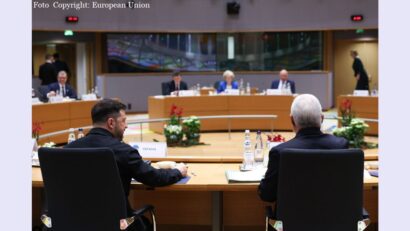The Government in Rome and Romanians in Italy
Italian Interior Minister Matteo Salvini expressed hope that the Romanian Presidency of the Council of the European Union will solve several pressing economic issues

Roxana Vasile, 14.02.2019, 13:52
Romanian-Italian
relations are based on a Consolidated Strategic Partnership, signed by the two
countries’ Foreign Ministers on January 9, 2008. The presence of a large
community of Romanians in Italy, totaling some 1,2 million people, and of a
significant number of Italians in Romania, have created an important social and
economic dimension for this relationship.
Political
contacts have been frequent and varied over the years. Romania’s president
visited Italy in 2008, 2011 and 2015, while the Romanian Prime Minister visited
Italy in 2009, 2012 and 2014. High-ranking Italian officials in turn visited
Romania in 2011 and 2016.
Also worth
mentioning is that the Inter-Government Summit mechanism was set up between
Romania and Italy, with the first edition being held in 2008 in Rome, whereas
the second edition was held in 2011 in Bucharest. Italy is currently one of
Romania’s top economic partners, both in terms of two-way trade, as well as
investment.
According to
statistics, on March 31, 2017 two-way trade accounted for 3.5 billion euros,
namely 5% higher as compared to the previous year. Cultural and scientific
cooperation between the two countries has also been prospering. Rome currently
plays host to Accademia di Romania, while the Romanian Institute for Culture
and Humanistic Research is based in Venice.
Romania hosts
three Italian Lecturers’ Departments, in Bucharest, Cluj-Napoca and Timisoara),
while Italy has six Romanian Lecturers’ Departments, in Calabria, Naples,
Padua, Pisa, Rome and Turin. Italy is also home to over 100 Romanian
associations.
In turn, Romania
has five high-schools with teaching in both Italian and Romanian. According to
Radio Romania’s correspondent in Rome, Italy’s Interior Minister Matteo Salvini
said that Romanians account for the biggest community in Italy, which is also
the best-integrated one from an economic, cultural and commercial point of
view.
The Italian
official said it is his duty to protect the large majority of Romanians who are
hard-working, honest people and to punish, at the same time, the few criminals who
stain the former’s image.
On the other
hand, Minister Salvini expressed hope that the Romanian Presidency of the
Council of the European Union will close certain economic issues that have been
pending for years and deal with more pressing matters, such as employment,
trade exchanges, tourism, agriculture and fishing. Last but not least, Matteo
Salvini said Europe cannot be simply a banking, financial or business market
and needs to refocus on human and family values.






























